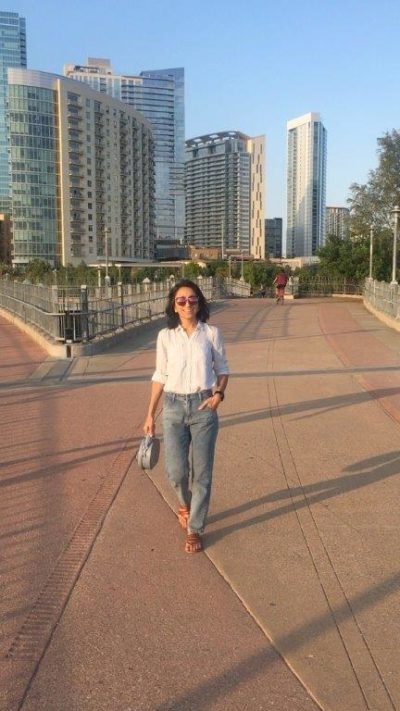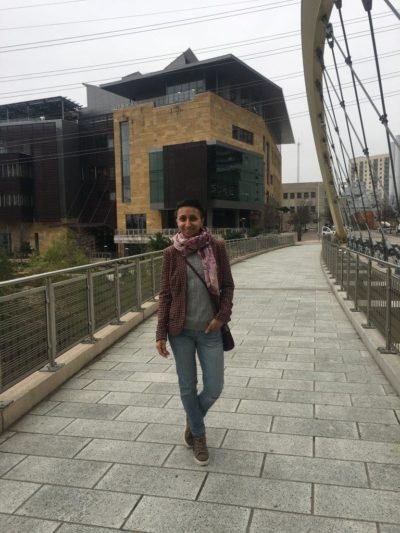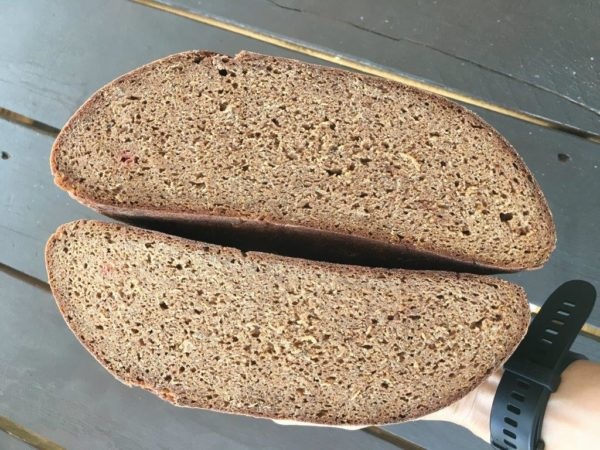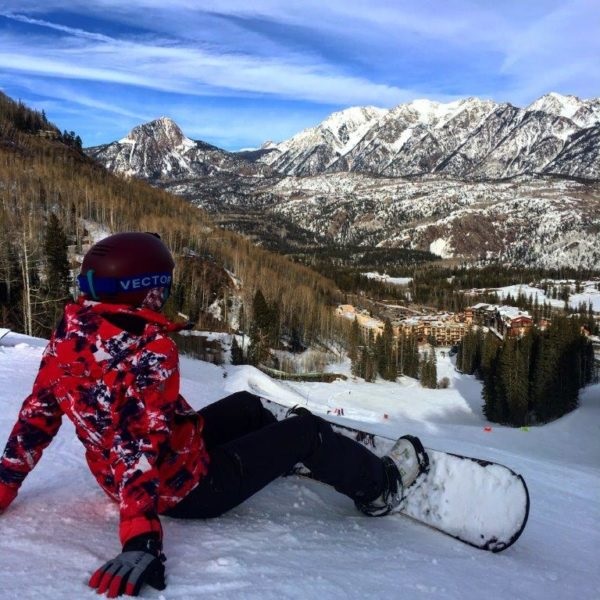
– Victoria, tell us about your story in America. Where did you study and work before Texas?
I grew up in the heroic city of Volgograd. I’ve got a degree from Volgograd State Technical University. To be honest, I have been dreaming of studying and living in the States since I was a little girl. To me America was a faraway, incredible, ideal country, it felt so right. This was due to a number of factors: movies, stories told by relatives and friends who had visited this country, books about the young America, merciless although fair. I am not ashamed of this, because to a certain degree our destiny is rooted in our childhood dreams, and they, as you know, are pure, naive and a little silly.
In 2010, I got my Bachelor of Science in Computer Science. Yes, I am that rare girl who has a boys’ major. In our group of 30 people there were only four girls including me. That same year, 2010, I began a long, painful yet exciting process of applying for a graduate program in the US. More precisely, I went to graduate school with an undeclared major: first you enter the graduate school, and then you decide when and what degree you want. I prepared all the necessary paperwork, certificates, got ready for my English exams. By the way, I have been studying English since the 3rd grade. I got accepted to the University of Houston, Computer Science Department. Although the admission itself cost me a pretty penny: I paid the application fees, trips to Moscow to take my exams, interviews, the exams themselves, plane tickets to the United States, etc., my tuition was free of charge, conditionally. Conditionally, because, taking into account my academic background, the university offered me free tuition in exchange for being a TA, for which they paid me. The pay was actually enough. Scant but sufficient. My first American money! My first paycheck!
Basically, this was my first employment. In Russia, I worked mainly in the summer – I was hiding from the Volgograd heat in airconditioned offices, and I also wanted to make some pocket money. During the academic year, I was an extra-credit scholarship, which was enough to cover my student expenses. After getting my tech degree in Volgograd, I worked for several months in a web design office. I got a handful of ‘Russian business ethics’ – unofissial salaries ‘in envelopes’, “forget everything you have been taught in college”, office politics and drama, penalties for showing up late. I am sure there are now many worthy employers in Russia, but back then I was not very lucky.
In 2013, I received my MSc in Computer Science and just a couple of months later I got a job at AMD Corporation. It was this job that brought me to Austin. To be honest, I was very happy to leave Houston. The city is good, just did not feel right for me.
– Tell us about your work
I am a Senior Software Engineer. This is a pseudo-scientific specialty. I analyze processor performance, looking for ways to improve it. My position requires knowledge of both programming and basic electronics. As my co-workers say: “This work is more art than science” because I am dealing with a new product, whose compatibility with existing programs, operating systems is unknown.

– How does education in Russia differ from that in the USA? Which was harder?
In Russia I was just a student, but in the States, I was lucky to be on both sides of the barricades – I studied and taught.
The most important difference, in my opinion, is that the student has a much higher degree of freedom in choosing the path that his or her profession will take in the future. Bachelors can take a variety of subjects for several years and only in the middle of their studies decide on the major. I fully support this, because at the age of 18, almost no one really knows what they want, how the world works, what people are like and what they would like to do in this world with these people.
Postgraduate and Master’s degrees also give you a choice of subjects, of your scientific major. By the way, I was surprised at how diverse and many-sided the IT profession in the United States is. They have applied mathematics in programming and electronics, electronics by itself, and programming by itself. And these are all separate schools, not just departments. And if you try to imagine how many branches there are in each of these departments, it will immediately become clear that our dichotomy that an IT specialist is either a programmer or a system administrator is very limiting of the field.
Speaking about which is harder, I would be remiss if I did not mention how hard the very first semester was. By the time I enrolled, I had been studying English for almost ten years, but when I arrived in the United States, I was amazed at how difficult it was to understand people and be understood. Lectures, new scientific terms, the speed at which professors speak. It wasn’t easy. I remember my first lectures as a teacher very vividly! Oh, was I worried! My knees were shaking, my fingers were numb. But when there is no one to rely on, except yourself, you just do the best you can and see what happens. I would also like to mention the very order and culture of studying – how to register for classes, how to avoid taking an unnecessary class, where to look for information about teachers, etc. A lot of this is predetermined in Russia. Here, it is your schedule, do what you like. In the US, you can choose subjects yourself, the only limit is in the number of academic hours. As a conditionally tuition-free student, I had to adhere to a certain minimum of teaching hours every semester. Subjects are selected both on the basis of their relevance and schedule convenience for the student himself.
Another difference, which I did not like at first, is the required extracurricular activities. In Russia, it is customary to sit out your lessons and go home. Here school is like a workplace: you come in the morning and leave in the evening. Over time, I grew fond with this system because by the time I come home all the homework, projects, coursework, lectures, my students’ homework are all done and left behind, and I go home to rest and recharge.
In terms of difficulty, Volgograd University gave me a good background of academic survival. I’m used to working with a tiny amount of input data and a bunch of output one. Therefore, although studying in the States was difficult for me since I had to do a lot in a limited amount of time, but it was convenient in terms of resources. Resources! Everything you need for research, studying and work. On demand. You can fully dedicate yourself to studies and teaching, without thinking about the ‘logistics’ and small things like ‘where do I get a projector for my lecture?!’
– What do you like Austin most of all?
I first came to Austin for a job interview. I liked the city from the get-go! After the stuffy, humid and sticky Houston, Austin surprised me with a cool breeze, lush greenery, beautiful nature within the city, nice and polite people.
Although Austin is not a metropolis, and there is no big city buzz Russians from multimillion cities are used to, it is a very neat, friendly and dynamic city. Austin is growing! This fact has its pros and cons.
Austin has a lot of artisan businesses: bakeries, galleries, and cafes.
In my opinion, the spirit of this city is freedom of self-expression and tolerance towards other people.
– When did you become interested in baking bread and pastry?
Right in 2011, when I first came in the USA!
I am a bread-eater! I can’t live without bread, especially dark, rye bread. The quality of American bread obviously disappointed me a little. At that moment, I had a bread maker that did real magic! I was so happy with the first bread loaf! Just like home – fresh, still hot wheat bread. I remember that in my bread machine you could load all the ingredients beforehand and start the delayed start program. So, every day at six in the morning I had fresh bread waiting for breakfast!

At some point (more than a year later), I had had enough of plain white bread and I wanted more. If my bread maker was capable of more, it would require a baker’s supervision. So, I began to study the theory and practice of baking. By the way, our Russian and Soviet bread industry, although having buried most of the traditional recipes, nevertheless made a huge contribution to the science of breadmaking. Therefore, the Russian-speaking audience of the Internet has many more sources for studying breadmaking.
Since I am an engineer by profession, I also bake bread scientifically: I want to know and understand what happens to the dough at each stage, why every action is needed (or not needed, but just trendy). Bread is a whole world for me! This is science, and art, and meditation, and therapy, and a way of artistic expression.
Pastry making is even more refined and elegant because it deals with very delicate ingredients. I took interest in the “sweet” art later, when I had already got the hang of baking in general. It’s incredible how you can get so many different baked products from butter, sugar, eggs and flour!

– Are you keeping in touch with your home country? Do you miss any aspect of life at home?
A difficult topic 🙂
The first years were really hard. I was missing my hometown so badly. I wanted to walk those streets, go to the bakery where my mother would take me as a child, and where I would have dates with my future husband later on. Inhale the humid autumn air smelling of wilting leaves; hear the crisp of frosty snow under your feet; feel the fresh spring breeze caress your ears after several months of wearing a winter hat. I really missed my family and friends.
However, I gradually built my new life in the United States: new connections, studies, work, chores and errands that are very different from ours. Over time, I adapted to the American lifestyle. I cannot say that I do not miss my home country at all, but I clearly see that I already don’t belong there.
– What traditions and habits have you kept from your pre-Texas life?
Not that many actually. You see, I left straight from my parents’ home and it was here, in the States, where I developed my own habits.
Sports – I have been working out since I was 17-18 years old.
I try to avoid overtly unhealthy food: junk food and everything related to it. I don’t exclude it completely but I treat it with caution.
I still love a sandwich with salted ‘eggplant caviar’ and tea with sugar =)
– Tell us about your family.
I’m married. My husband is an engineer too. He works in the oil and gas industry. We came to the States together, we went through many of the hardships of adaptation together.
– What other interests and hobbies do you have?
I love to take pictures, crochet and knit, and to travel.
I often reflect on life, myself, and other people. I love to write and express my thoughts on paper, the old-fashioned way – only by hand. My dream is to be published in a newspaper or magazine on different topics: opinion, reportage, or descriptive prose.
A few years ago, I made another childhood dream come true – finally got on a snowboard! It was so hard! Winter sports are another passion of mine. It is a very physically and emotionally exhausting activity, but the adrenalin and pleasure that you feel sliding down a mountain on the board, are not like anything else.

Still my main hobby is, of course, bread, pastry and cooking in general. I like the engineering part of the process: how and why the ingredients are mixed, how and why they are processed one way or another. The result is a small victory every time. I share pictures of bread, recipes and different baking tricks on my Instagram page @breadelicious_austin
– What else would you like our readers to know about you?
I’m sentimental and sensitive, rational and even sometimes cynical, self-critical and observant, straightforward and at times vain. I love ‘edgy’ sense of humor.
– What would you like to wish to the Russian-speaking people of Austin and Texas?
To be honest, this question took me by surprise.
Ten years ago, I would have said: “What more could you want?! You are in AMERICA! You don’t need anything more!”
Five years ago, I would have said: “What could you wish someone far from home? You wish all you want but it is a foreign country and will always stay foreign… ”
Today, I want to wish all of us patience and resilience in these difficult times, this too shall pass one way or another. If we are here in the States, it is for a reason. Here and now, this is where we belong.
Tomorrow will depend on how today ends!
I wish you all the best and peace in your soul!
Contact information:
Facebook: https://www.facebook.com/victoria.stepanyan.9/
Instagram: https://www.instagram.com/breadelicious_austin/
E-mail: vstepany1986@gmail.com
Interviewed by: Dmitriy Ovcharenko
Edited by: Irina Khoroshavina
Publisher: Russian Cultural Center
